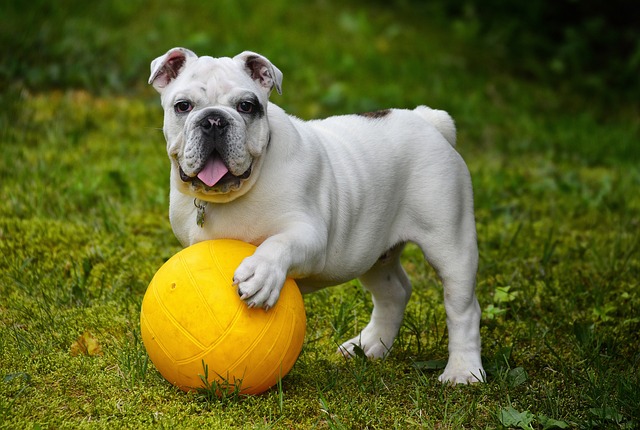
How do i train my dog to be obedient?
Watching your dog dart across the park ignoring your calls isn’t just frustrating—it can put them at risk near busy streets or public spaces.
You’ve just welcomed a fluffy, wiggly puppy into your home, and suddenly your hands and ankles have become their favorite chew toys. It’s a universal experience for new dog owners in cities from New York to San Francisco. That sharp little needle-teeth phase makes every new puppy parent wonder, "Is it okay to just push my puppy away when they bite?" While a gentle push might be your first instinct, understanding the why behind the biting is your first step toward a lasting, positive solution.
Puppies explore the world with their mouths, much like human babies. This biting isn’t aggression; it’s a combination of teething discomfort, playful investigation, and learning how to interact socially. In a litter, puppies learn "bite inhibition" – how to control the force of their bite – from the yelps and reactions of their siblings. When you push a puppy away, you might be inadvertently engaging in a form of physical play they interpret as you "biting back," which can amp up their excitement and make the behavior worse. Instead of a push, the gold standard endorsed by modern animal behaviorists is a technique called the "reverse timeout." When those teeth make contact with your skin, let out a high-pitched, dramatic "Ouch!" or "Yelp!" to mimic a littermate, immediately stand up, and calmly walk out of the room for 30 seconds. This teaches them that biting makes the fun human and all the attention disappear.

This method aligns perfectly with the deeply ingrained animal welfare culture in the U.S. and EU, where positive reinforcement training is not just a preference but a legal and ethical expectation. Using physical punishment like hitting, alpha rolls, or even forceful pushing is not only culturally frowned upon but can damage your bond and potentially create a fearful or defensively aggressive adult dog. Your training approach must extend beyond the living room. Before you even think about practicing "bite inhibition" in a local park, you must be hyper-aware of local compliance. This means your puppy’s vaccination records, especially for rabies, must be complete and up-to-date as per state laws. Always carry poop bags – failing to clean up after your pet isn't just a major social faux pas; it’s a fineable offense in most American municipalities and a surefire way to anger your neighbors.
For those navigating puppyhood in an apartment building, these lessons are doubly important. A barking, nipping puppy in close quarters can quickly lead to noise complaints. Managing their environment is key; keep appropriate chew toys like frozen Kongs or rubber teethers in every room to instantly redirect their chewing onto an approved item. When you head out for a crucial socialization walk, remember community etiquette: keep your pup on a leash unless in a designated off-leash area, and always ask, "Can they say hello?" before allowing your puppy to approach another person or dog. This respectful, positive, and compliant approach from the very first bite ensures you’re not just raising a well-mannered dog, but also becoming a responsible and respected member of your local pet-owning community.

Watching your dog dart across the park ignoring your calls isn’t just frustrating—it can put them at risk near busy streets or public spaces.

New puppy owners often find themselves rushing to clean up accidents before they set in, and that’s where puppy pad training becomes a game-changer.

If you've noticed your dog's waistline disappearing and your veterinarian has mentioned those few extra pounds, your first instinct might be to simply reduce the amount of food in their bowl.

Training a dog to use a designated spot indoors isn’t as daunting as many new owners fear, but it does take consistency and an understanding of your pet’s needs.

That moment of dread on a walk is all too familiar for many new dog owners. You see another dog approaching down the sidewalk of your neighborhood

If the sight of another dog on your neighborhood walk makes your heart sink as your own dog erupts into a frenzy of barking and lunging, you're not alone.